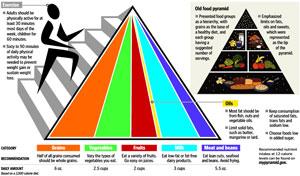
We are in the early weeks of our New Year’s Resolutions, the period when we are enthusiastic about making ourselves — happier, thinner, kinder, more focused, better paid, or whatever it is we hope to become in 2016.
I have resolved to lose 20 pounds, as I do every year, and to learn how to meditate — something I find much more interesting than dieting. I have already begun researching meditation practices and techniques online even though keyboarding uses few if any calories. I hope meditation will help with what yogis call “monkey mind” and what everyone else calls tossing and turning in the middle of the night.
I have plenty of company in the self-improvement resolution department. Most — some say all — New Year’s resolutions involve losing weight, and that is a good thing for those of us in North Carolina, where we face a number of significant health challenges, including fat. The United Health Foundation ranks North Carolina 31st in the nation in general health, with some good news and some not-so-good news. The good news is that we are up from 37th in the nation last year, and we are second nationally in childhood immunization rates. The bad news is, among other statistics, North Carolina is 33rd in the rate of diabetes, 44th in the number of dentists, 9th in binge drinking, and has a high disparity between the health of more educated people and those without high school diplomas.
Bad news as well about our weights. We are too heavy and getting heavier. The Robert Wood Johnson Foundation, which tracks such numbers, reports that our adult obesity rate is now nearly 30 percent, up from 21 percent in 2000, and a petite 12 percent in 1990. Fewer children are obese, but then they have not had as much time and opportunity to eat. Obesity, of course, brings with it all sorts of health woes including diabetes, heart disease, high blood pressure, arthritis and cancer.
Blessedly, help of sorts arrived earlier this month just in time to bolster our New Year’s resolutions in the form of suggestions from the U.S. Departments of Agriculture and Health and Human Services about what we should eat and what we should not. No real surprises in the latest report, one that our government thoughtfully issues every five years. In a nutshell, eat lots of fruits and vegetables, whole grains and not so much dairy and meats, especially highly processed meats. Take it easy on saturated fats, salt and sugar, which are singled out as particularly tough on the human body. The report says we take in our daily sugar quota in on 16-ounce soda, a fact which should cause soda consumers serious pause.
Many an elementary school student has already mastered these general guidelines. It seems to be adults who have trouble with them, probably because our bad habits — which we probably did not know were bad when we started them —are of long standing. That is why we hope our resolve will hold beyond the month of January.
This year’s report sounds like good sense to me, but with all due respect to our government’s thoughts about what should pass our lips, I have a few of my own to share.
The closer the food is to its natural state, the better it is for you. For example, fresh apples and grapes have not been processed and are fine. A piece of cheddar on occasion for sure, but processed cheese product in any form, especially powder, YIKES! Apple pie — well — you get the point. Ditto for broiled fish as opposed to a fried seafood platter and a small square of dark chocolate and a gooey s’more.
If it — whatever it is — is larger than your palm, think twice before you eat it. A slice of summer watermelon - yes, but a rib-eye steak, probably not unless you are 6 ‘5”.
If you read the ingredients and cannot pronounce or spell them, don’t eat it. There is simply no telling what you are putting in your body. My red flags also go up when the package lists more than five or six ingredients. They may be just fine but I do check.
We all know our forebears ate everything they wanted that they could get their hands on, and some of us feel we should as well. Our forbearers’ chow, however, was not laden with chemicals they had never heard of, and their life expectancies were nowhere close to those of today’s Americans.
And even if your resolutions fall by the wayside as most do, including my 20 pounds, which have been with me for quite a while now, do not despair. Agriculture and Health and Human Services are probably already working on the next round of eating guidelines due to arrive in time for New Year’s 2021.

 How to resolve AdBlock issue?
How to resolve AdBlock issue? 








